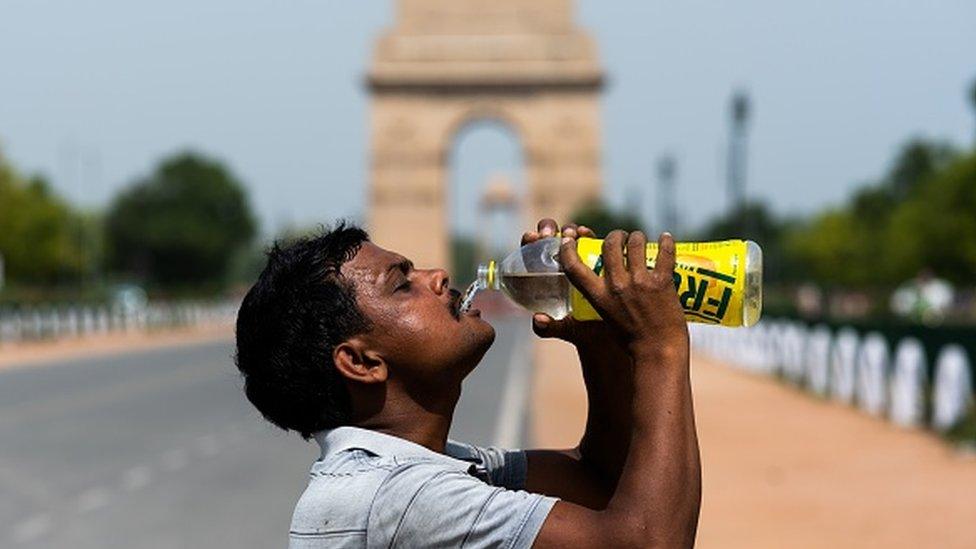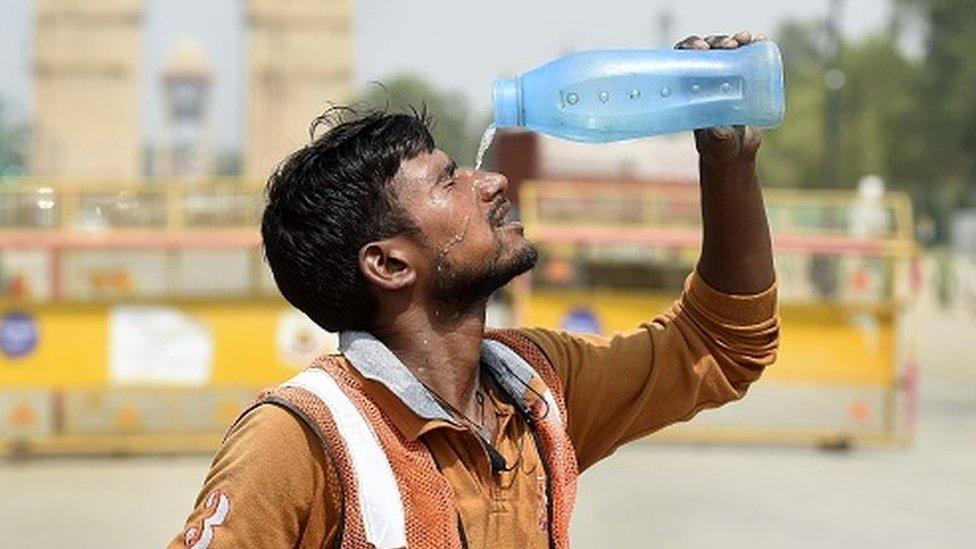India heatwave: High temperatures killing more Indians now, Lancet study finds
- Published

India has faced increasingly intense heatwaves in recent years
India saw a 55% rise in deaths due to extreme heat between 2000-2004 and 2017-2021, a recent study published in the medical journal, The Lancet, has found.
Exposure to heat also caused a loss of 167.2 billion potential labour hours among Indians in 2021, the study noted.
This, it adds, resulted in loss of incomes equivalent to about 5.4% of the country's GDP.
India has faced increasingly intense heatwaves in recent years.
While many parts of the country have regularly experienced heatwaves in summer, experts have said these are now becoming longer, more intense and frequent.
In the annual Lancet Countdown report published on Tuesday - which looked at 103 countries - researchers found that the heatwave which hit India and Pakistan between March and April was 30 times more likely to have happened because of climate change.
"Exposure to extreme heat affects health directly, exacerbating underlying conditions such as cardiovascular and respiratory disease, and causing heat stroke, adverse pregnancy outcomes, worsened sleep patterns, poor mental health, and increased injury-related death," the study noted, adding that vulnerable populations were most at risk.
Earlier this year, a study by the UK's Met Office had also found that climate change had made record-breaking heatwaves in northwest India and Pakistan 100 times more likely.
Without climate change, such extreme temperatures would occur only once every 312 years, it said.
The Lancet report added that globally, heat-related deaths have increased by two thirds over the last two decades.
Burning of fossil fuels
The study also estimated that more than 3,30,000 persons died in India from exposure to particulate matter - tiny particles that can clog lungs - from the burning of fossil fuel in 2021.
The reliance on burning fuels like oil, natural gas and biomass meant that average household concentrations of particulate matter exceeded the World Health Organisation (WHO)'s recommendation by 27-fold in the country, the report said.
It was released ahead of the COP27 climate conference which will be held in November in Egypt.
"The climate crisis is killing us," UN secretary-general Antonio Guterres said in response to the findings of the report.
"It is undermining not just the health of our planet, but the health of people everywhere - through toxic air pollution, diminishing food security, higher risks of infectious disease outbreaks, record extreme heat, drought, floods and more," he said.

Read more India stories from the BBC:

- Published18 May 2022

- Published16 May 2022
